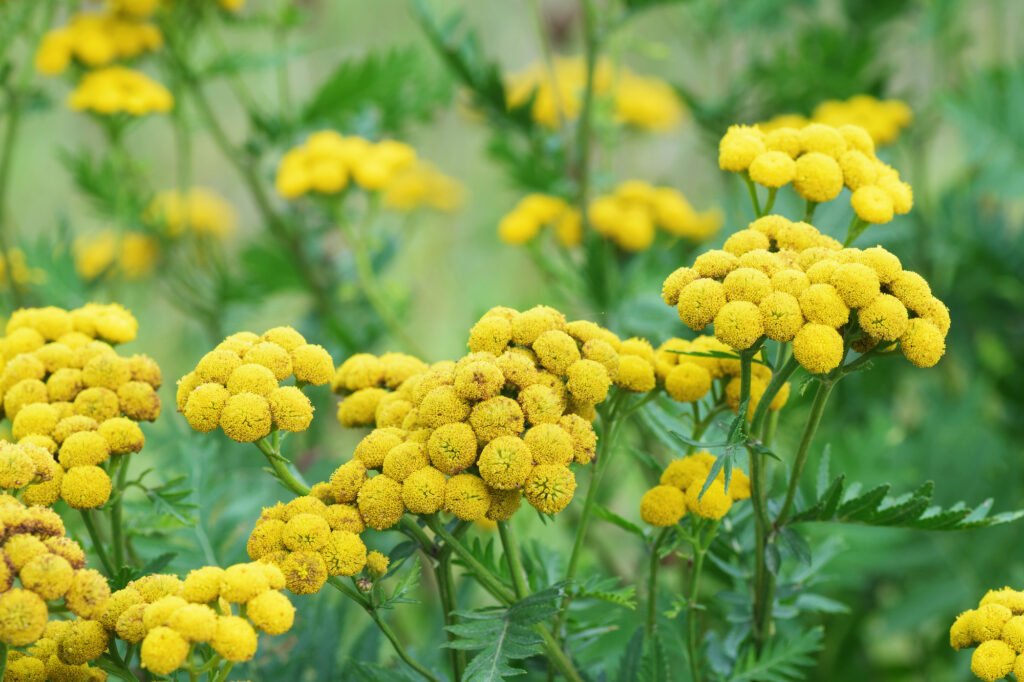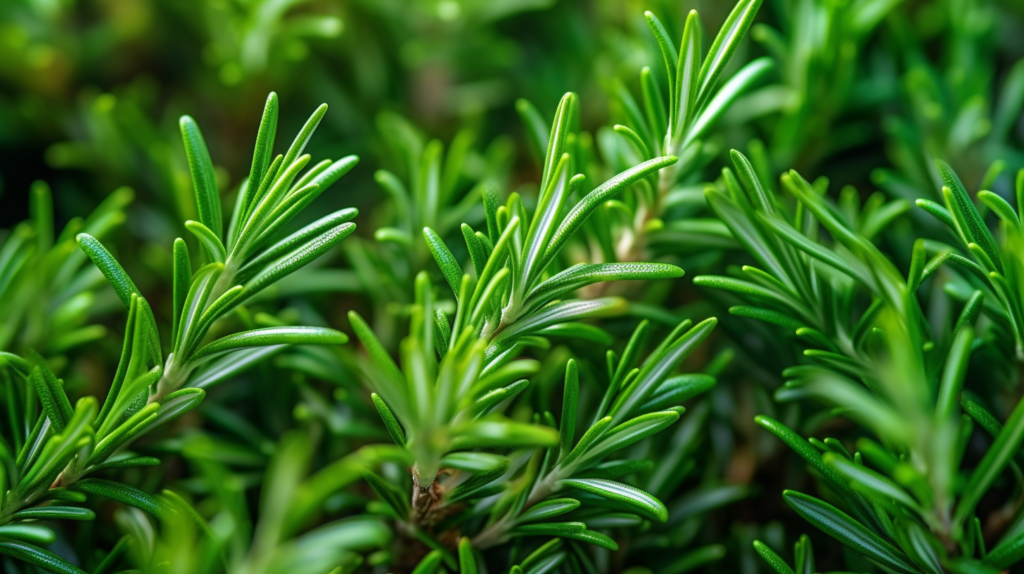These 5 plants help against ticks: This is how garden owners protect themselves in a natural way
Unfortunately, with spring and summer comes the time of ticks. But don’t worry, there are natural ways to protect yourself and your garden from these annoying bloodsuckers. In this article we will introduce you to five plants that are known to keep ticks away. This means you can avoid using chemicals and protect yourself in an environmentally friendly way at the same time.
5 plants to keep ticks away
1. Rain fern

The tansy, also known as Tanacetum vulgare , is a plant that is valued not only in the garden for its sunny yellow flowers. It is also a natural enemy of ticks.
With the strong scent of its leaves, tansy can deter ticks and thus help protect against Lyme disease and TBE, both diseases that are transmitted through tick bites.
Location and plant care
Tansy loves the sun and thrives best on humus-rich, nutrient-rich soil. To promote a strong, leafy plant that keeps ticks away, plant the tansy in a warm spot in the garden.
The plant also grows easily along roadsides and can easily cope with pruning in September.
Caution:
- Tansy can be poisonous to animals and people.
- The thujone it contains in particular can lead to vomiting and gastrointestinal problems if consumed.
Using tansy in the garden as part of an anti-tick strategy should always be done with proper caution and considering its toxicity. It is advisable to plant tansy out of the reach of pets and children.
2. Rosemary

Rosemary is not only a wonderful culinary herb that gives your dishes a Mediterranean flavor, it can also play a helpful role in the garden.
Did you know that rosemary can serve as a natural protection against ticks? The plant gives off a strong scent that comes from essential oils and is not liked by small animals.
Here are a few points to keep in mind when planting rosemary:
- Location: Rosemary loves the sun. Choose a warm, sunny spot in your garden for the herb.
- Soil: The soil should be well-drained to prevent waterlogging. A pH-neutral soil is optimal.
- Care: Rosemary originally comes from the Mediterranean region and is therefore heat and drought resistant. So you should water it moderately.
Essential oils are the secret of this useful plant. They contain chemical compounds such as cineole, camphor or rosmarinic acid, which can help repel ticks.
The strong smell of rosemary is often perceived as pleasant, but ticks and other insects stay away.
3. Dalmatian insect flower
The Dalmatian insect flower, also known as Tanacetum cinerariifolium , is not only an asset to your garden because of its aesthetic flowers, but also an effective plant in the fight against unwanted guests such as ticks and insects.
The pyrethrins contained in the flower heads serve as a natural protection against pest insects, making the plant an important component of natural pesticides.
How it works in the garden
- Natural insecticide : The insect flower contains active ingredients that act as a natural insecticide and therefore deter ticks and other arachnids.
- Smell : The plant’s characteristic scent is pleasant to humans but repellent to ticks.
4. Catnip
Catnip, also known as Nepeta cataria , is a plant that not only looks great in the garden, but also offers a practical function: it keeps ticks away. The scent of this plant acts as a deterrent to these annoying animals. So catnip is a natural remedy against ticks.
This plant thrives particularly well in well-drained soil and loves sunny spots. So it’s perfect for a spot in the garden, where it looks great with its purple flowers, which are visually reminiscent of lavender.
In addition to its benefits for the garden, catnip is one of the herbs that contains essential oils. These oils are not only responsible for the scent that drives away pests, but also attract beneficial insects.
Although catnip is particularly attractive to cats – hence the name – it does not have a deterrent effect on other garden creatures such as birds or hedgehogs. It therefore offers versatile added value in the garden.
In addition, catnip can be combined with other plants such as basil, oregano or marjoram, all of which can also help against mosquitoes.
This not only creates a fragrant oasis, but also practical protection against various garden pests.
5. Narrow-leaved lavender
With the narrow-leaved lavender you not only bring a piece of aesthetic floral splendor into your garden, but also a natural tick protection.
Also known as true lavender , this herb goes by the scientific name Lavandula angustifolia and is famous for its intense scent.
Its essential oils, especially the aromatic linalool, are what keep ticks and other insects away. Let’s look at the benefits of narrow-leaved lavender for your garden:
- Repellent effect : Lavender is known to deter ticks, which is particularly important for preventing tick-borne diseases such as TBE and Lyme disease.
- Care : It is robust and survives even longer dry periods.
- Wildlife-friendly : While ticks and other pests avoid the scent, lavender attracts beneficial animals such as bees, butterflies and birds.
When planting narrow-leaved lavender, you should consider the following:
- Plants in a sunny location ; Lavender loves the sun.
- Choose well-drained soil and avoid waterlogging.
- Gets along well with other anti-tick plants such as thyme and rosemary.
And not to forget, in addition to fighting ticks , narrow-leaved lavender also enriches every herb garden and spreads a pleasant lemon to grapefruit note with its essential oils.






